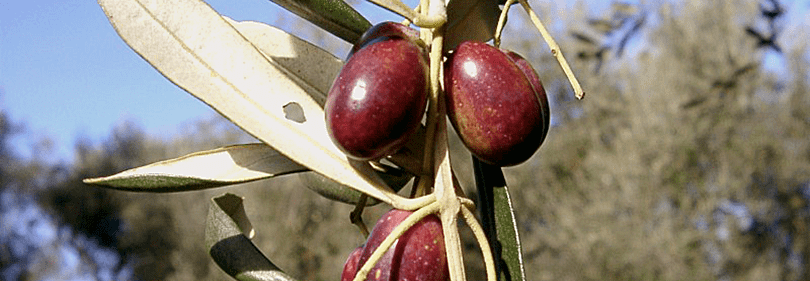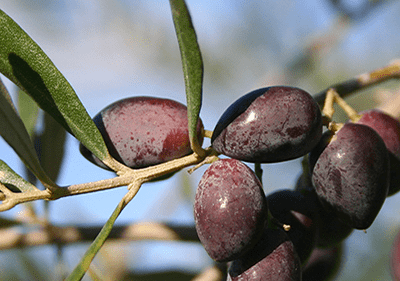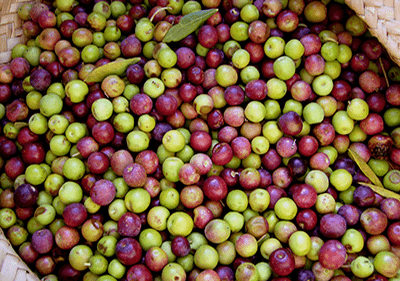
The olive trees and its fruits
The olive tree belongs to the family of Oleaceae and originated in the eastern Mediterranean region
It is believed that the tree was introduced to Italy sometime around 600 B.C.

The olive tree prefers a subtropical Mediterranean climate
The olive tree blooms in springtime with white or yellow flowers. Starting in May/June the tree begins to bear fruit. Unripe olives are green and, depending on the type of tree, the olives will become a deep violet to blueish black when ripe. The olive tree is an evergreen and can grow up to 20 meters tall. If taken care of properly the tree can live to be over 1000 years old. It grows best in the subtropics and is well suited to the Mediterranean climate with its dry hot summers and wet cool winters. It has a bony looking trunk and the bark tends to appear very fissile. The leaves are thin and pointed. The color on the upper side is generally a grayish green and a pale silvery white on the underside.
Olive Harvest
The harvest usually begins in November and is completed by the end of December. Only a special kind of olive is harvested later than this, normally around February. The whole process of harvesting cannot last longer than two weeks, otherwise the olives will spoil. There are many ways to harvest olives nowadays given technological breakthroughs.
1. Nets, made out of plastic or linen, are laid down on the ground between the trees, which are shaken so that the olives fall. This can be done by hand or, sometimes, with an electric machine.

2. The olives can be picked by hand – but it takes a long time!
3. The tree is beaten with branches taken from the tree and the olives fall into nets laid out on the ground between trees.
There are many techniques for producing olive oil from the olives. The traditional method involves first cooling the olives and then grinding them between two grindstones. The left-over pulp is then further milled in a hydraulic press. This process is generally not practiced much nowadays, as there are much more powerful mechanical presses available that do everything in one step.
Olive oil is not only used to make dishes, but is said to have many other uses, including a cure-all (locals say it helps lower fevers), an aphrodisiac, as a beauty and health product, and as soap and body moisturizer.

Types of olive oil
Native Olive oil extra (or extra virgin) – highest quality, generally made using mechanical methods.
Native Olive oil (or virgin fine) – generally a bit more fruity than native olive oil extra.
Normal native Olive oil (or virgin semifine) – is hardly offered now.




